Staple Spices for Your Home Cooking Arsenal
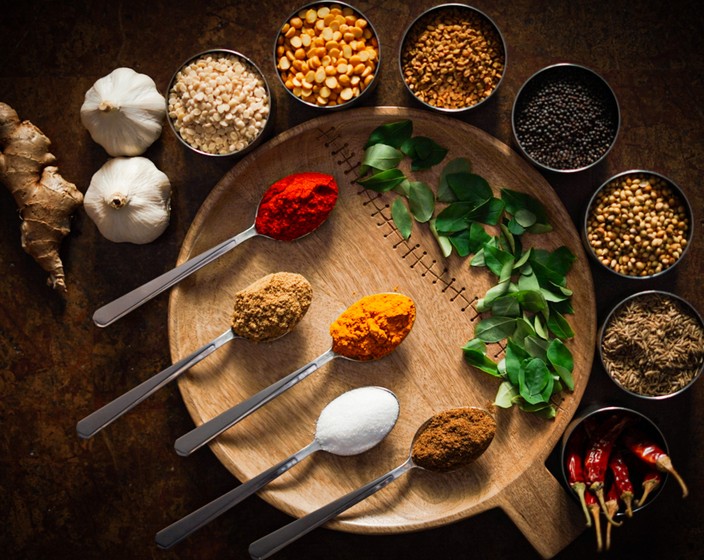
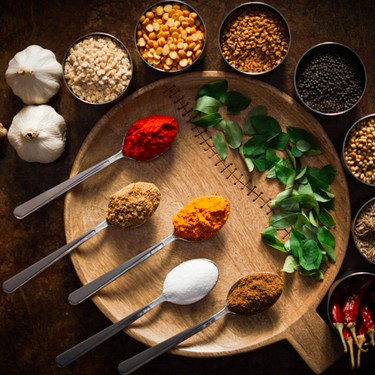


Do you love to cook but wish you had a little more flavor in your food? Are you looking for ways to add a bit of zing to your recipes without having to purchase everything on your local grocery store spice rack?
If so, then read on! Below, we have compiled a list of 18 essential spices and herbs that all home cooks should have in their pantry. With these seasonings on hand, you'll be able to spice up any dish easily or even create fancy seasoning blends yourself !

If you could only have one spice (assuming you already have salt) in your pantry, black pepper would be a great choice. It's incredibly versatile and can be used in sweet and savory dishes.
Pepper provides a kick without making the dish too spicy, which allows for incredible versatility and highlights the ingredients' natural flavors. Freshly ground is always better.
Garlic Powder is one of the essential spices for any home cook. It is perfect for adding flavor to your dishes without having to chop up any fresh garlic cloves. Plus, it lasts a long time in your pantry, so you can always have it on hand when you need it. A generous pinch of garlic powder instantly adds more fragrance and depth to almost any savory dish without adding any extra fat or sodium.
Fresh garlic is always great, but garlic powder is a good alternative for when you don't have time and don't want to have garlicky-smelling fingers.
Chili powder is a moderately hot blend made using a variety of peppers from the Capsicum family. It includes the spicy cayenne, but a store-bought chili powder mix also includes garlic powder, onion powder, salt, and ground cumin.
Chili powder should always be present in your pantry if you enjoy the flavor profile of Tex-Mex dishes. And you can always add more cayenne to that base and make it as spicy as you prefer.
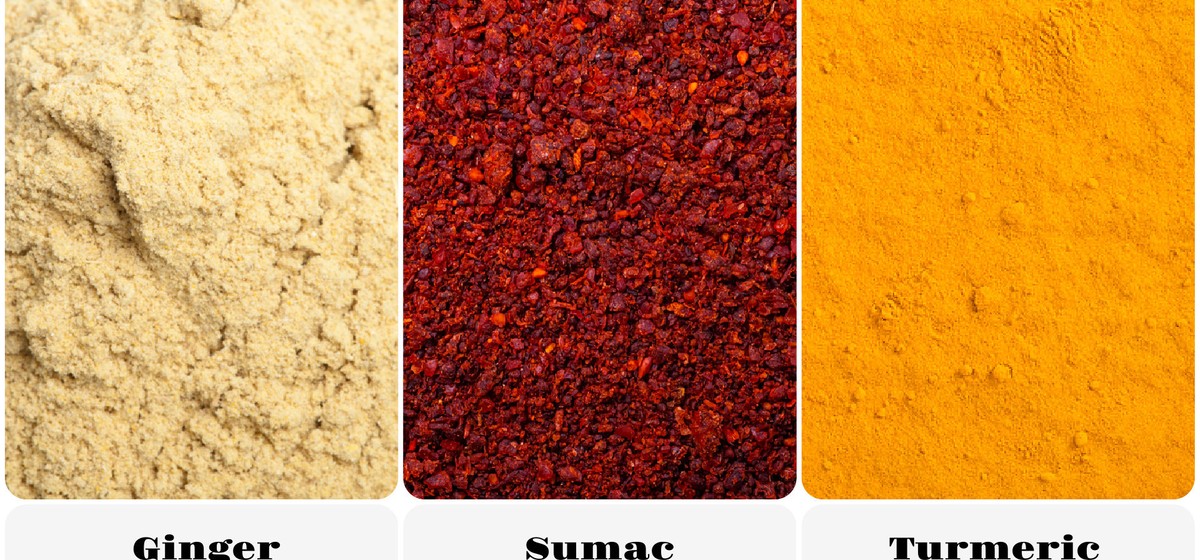
Ginger is the black pepper of Asian cuisine. It's thrown into everything from stir-fries to soups to grilled fish. Ginger brings a bright zing that adds flavor but, more importantly, cuts through the fat and banishes fishiness. It also serves to bring out the umami in dishes.
This warming spice is used in all sorts of dishes, from sweet and spicy Asian-inspired stir-fries to comforting pumpkin pies. Keep a jar of ground ginger in your pantry, and you'll be able to add flavor to any dish in no time. Ginger works miracles, but be careful because ginger can quickly become overpowering!
Sumac isn't a household spice for most people, but it should be. It's also a nutritional powerhouse, providing antioxidants, minerals, and vitamins.
It has a tart, fruity flavor, and a deep red color that can brighten up any dish. Sumac can be used in savory or sweet dishes, and it's perfect for adding a pop of flavor to your recipes.
Even the simplest of home-cooked meals can be elevated with the right spices. And one of the essential spices for any well-stocked pantry is ground turmeric. Prized for its aromatic and peppery flavor, as well as its wealth of health benefits, ground turmeric is a must-have for any cook looking to add a touch of flavor and nutrition to their dishes.
Ground turmeric works wonders with root vegetables, poultry, rice, and curry. Not to mention how wonderful it tastes in desserts and drinks like latte, infused tea, or a healthy smoothie.
Whether you're whipping up a quick weeknight meal or preparing something more elaborate, ground turmeric will add an interesting, flavorful twist to any dish.
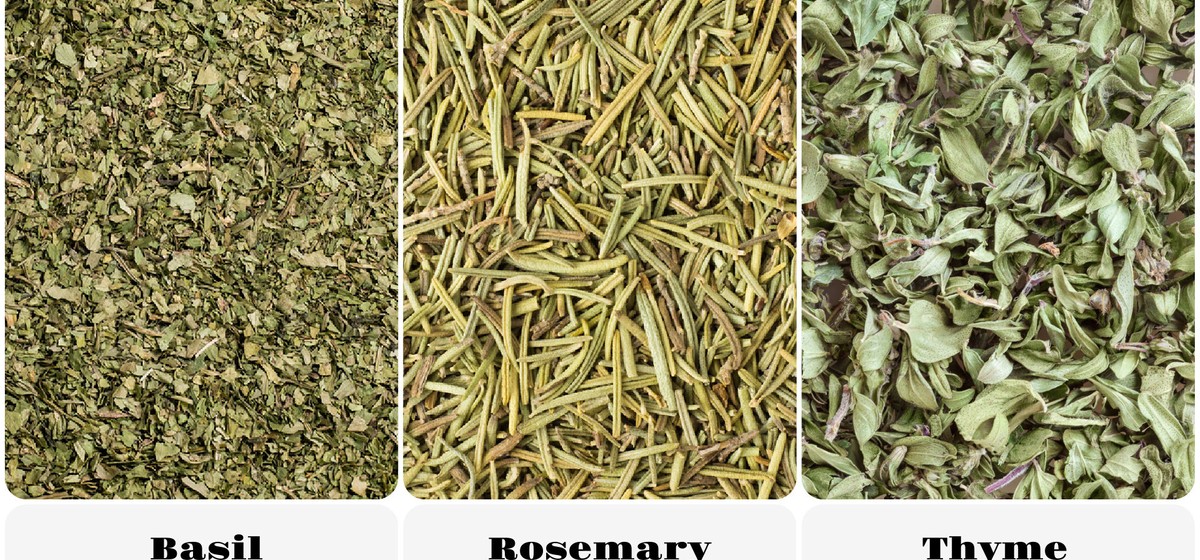
Nobody wants to cram their pantry with endless jars or dried herbs, but some herbs are an absolute must, and dried basil is one of them.
If you like Italian food, you will use dried basil in many of your recipes. It is one of the main components of the Italian herb mix - an indispensable herb in the kitchen.
Another fragrant component of the Italian herb mix - rosemary deserves a place on your spice rack. Whether you're roasting chicken or pork, making gravy, or adding some flavor to a soup or stew, dried rosemary is a great herb to have on hand.
Dried thyme is a common kitchen herb that has many purposes. It has a sharp, earthy flavor with a hint of floral sweetness. It's used in savory and sweet dishes and can be added to nearly anything for an extra layer of flavor.
While many fresh herbs change their taste profile when dried and can't be used interchangeably, dried thyme keeps most of the fresh thyme flavor. You can easily substitute this fresh herb with its dried version. But be careful and use roughly one-third the amount - dried thyme is much more potent than its fresh version.
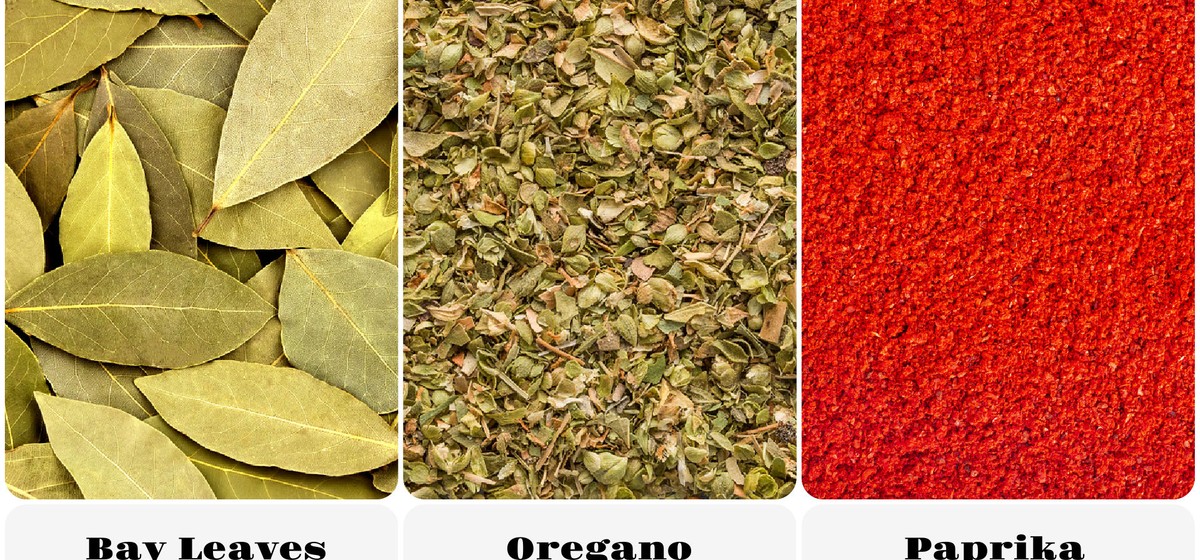
One of the most common dried herbs is the fragrant bay leaf. It is a must-have ingredient in many soups, stews, braises, and marinades. Bay leaves have a strong flavor and add complexity to dishes. In fact, this tiny leaf is so aromatic and rich it can be added even after cooking.
Oregano is an earthy, pungent, slightly bitter spice that works well with bold cuisines, like Greek or Italian. This herb is an excellent way to season meat, fish, pasta dishes, and even pizzas. Sprinkle a tiny bit of oregano into a Greek salad dressing, or add it to a marinade for lamb or chicken.
Oregano is not an herb you can be generous with. Add too much, and it will overpower every other flavor.
Paprika is a playful spice made from sweet red peppers; it's fruity and slightly sweet. It goes well with just about any dish you can think of: soups, stews, sauces, and marinades; this essential pantry spice is indispensable.
Paprika should be added close to the end of cooking or after the dish is done. You can also sprinkle this flavorful powdered seasoning on deviled eggs or creamy soups; not only will it add some extra zing but also beautiful bright color.
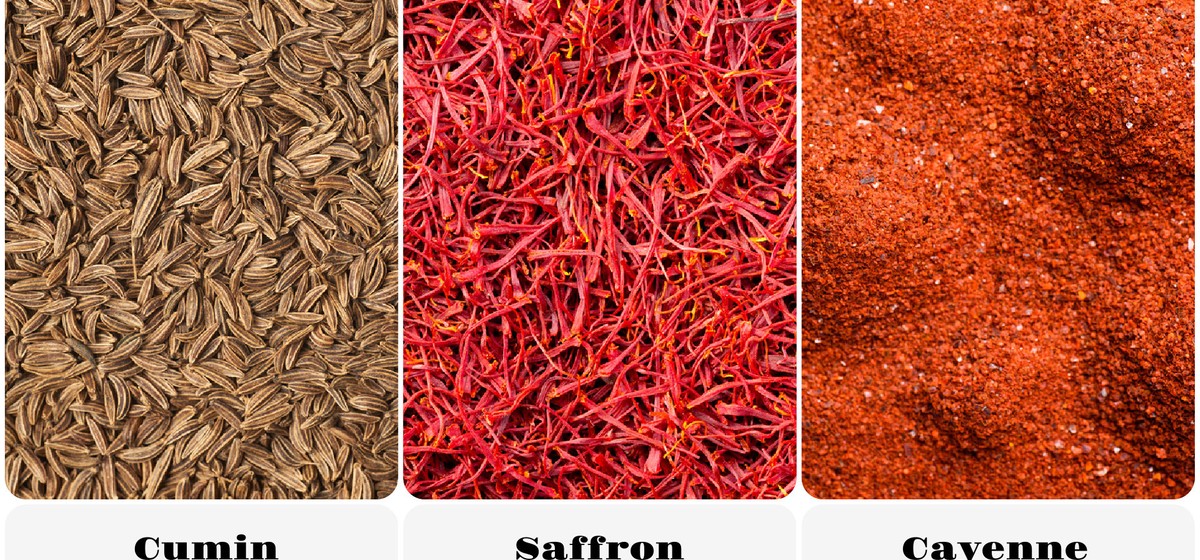
Cumin is often overlooked in favor of more assertive spices, but this mellow yet aromatic spice is a true powerhouse. It works with nearly all flavor profiles and really gives any dish some extra flair, whether it's in Tex-Mex or Asian dishes.
Saffron is one of the most prized and expensive spices in the world. It has many culinary uses, from adding color and flavor to rice dishes to making fragrant broths. It has a very complex, nuanced taste, both earthy and floral, slightly bitter but sweet.
Not only is it a flavor powerhouse, but it is also high in antioxidants and has been linked to many health benefits.
Cayenne is not for you if you don't like hot and spice. Use this robust pepper variety when you want to increase Scoville level and add some spicy punch to your cooking.
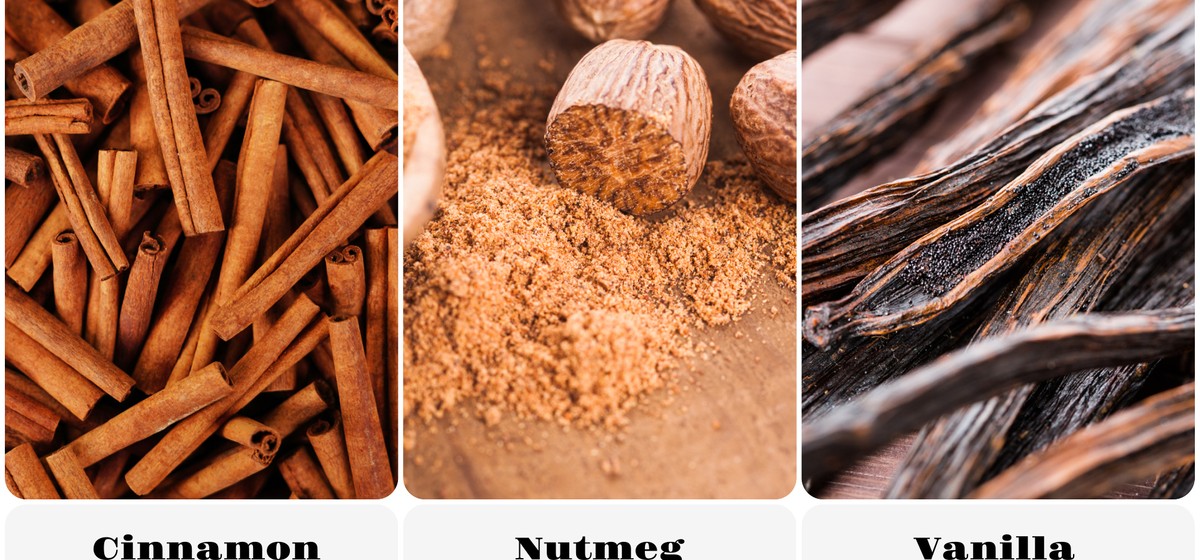
Most people associate cinnamon with sweet treats, but these spicy sticks are far more versatile. In addition to the spicy kick, cinnamon’s slight sweetness adds flavor complexity.
Sprinkle ground cinnamon into spice rubs or toss a few sticks into marinades and stews to instantly add another dimension to the dish.
Nutmeg is a powerful warm spice with a slightly sweet yet nutty and earthy flavor. It is a crucial ingredient in many autumn-inspired desserts and baked goods (think pumpkin pie). Many of our seasonal favorites, like eggnog or mulled wine, also need a bit of nutmeg.
Don't be too generous with this aromatic spice. Too much, and it can make anything taste bitter and soapy.
Vanilla needs no introduction. It's a well-known, incredibly aromatic flavoring agent added to almost every dessert you can think of.
You could say that vanilla is sweet and almost tastes like marshmallows, but in high concentration, it can overpower any other flavor profile and turn even the sweetest dessert bitter. Moderation is key.